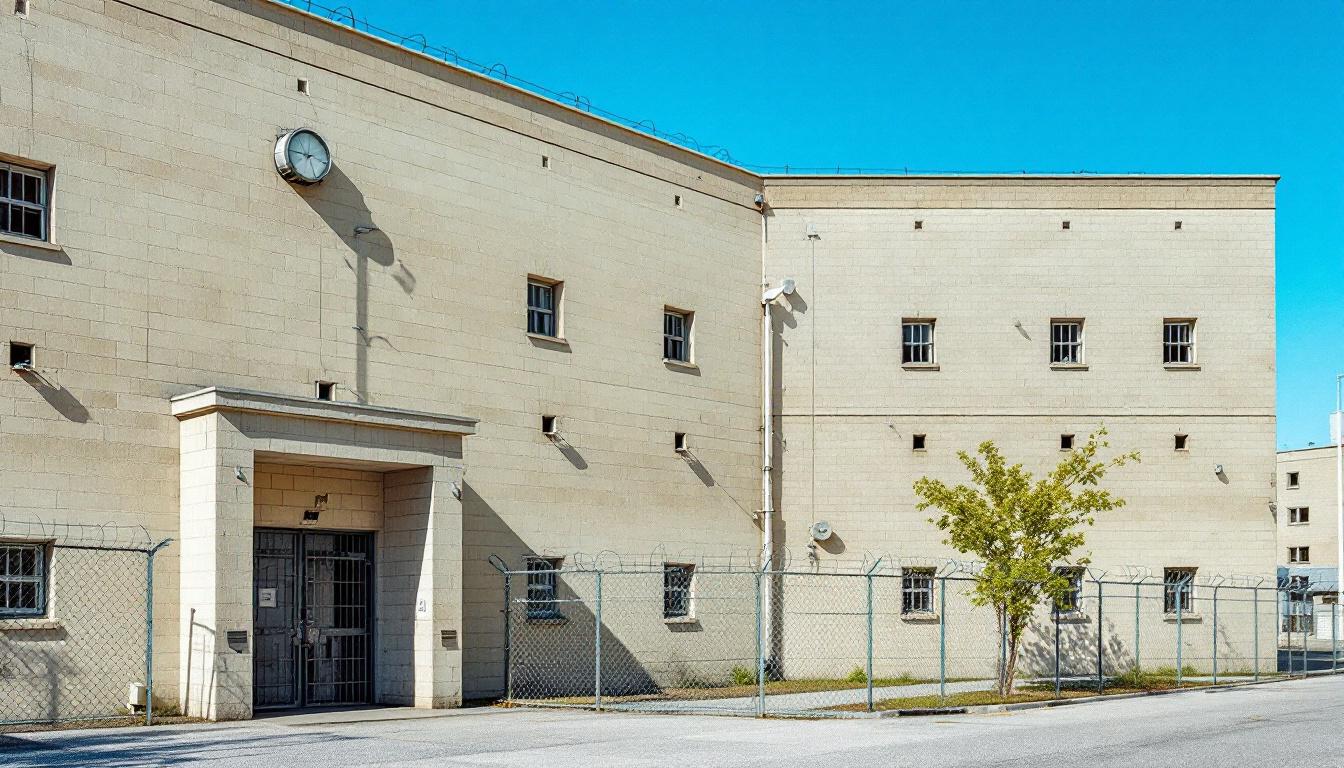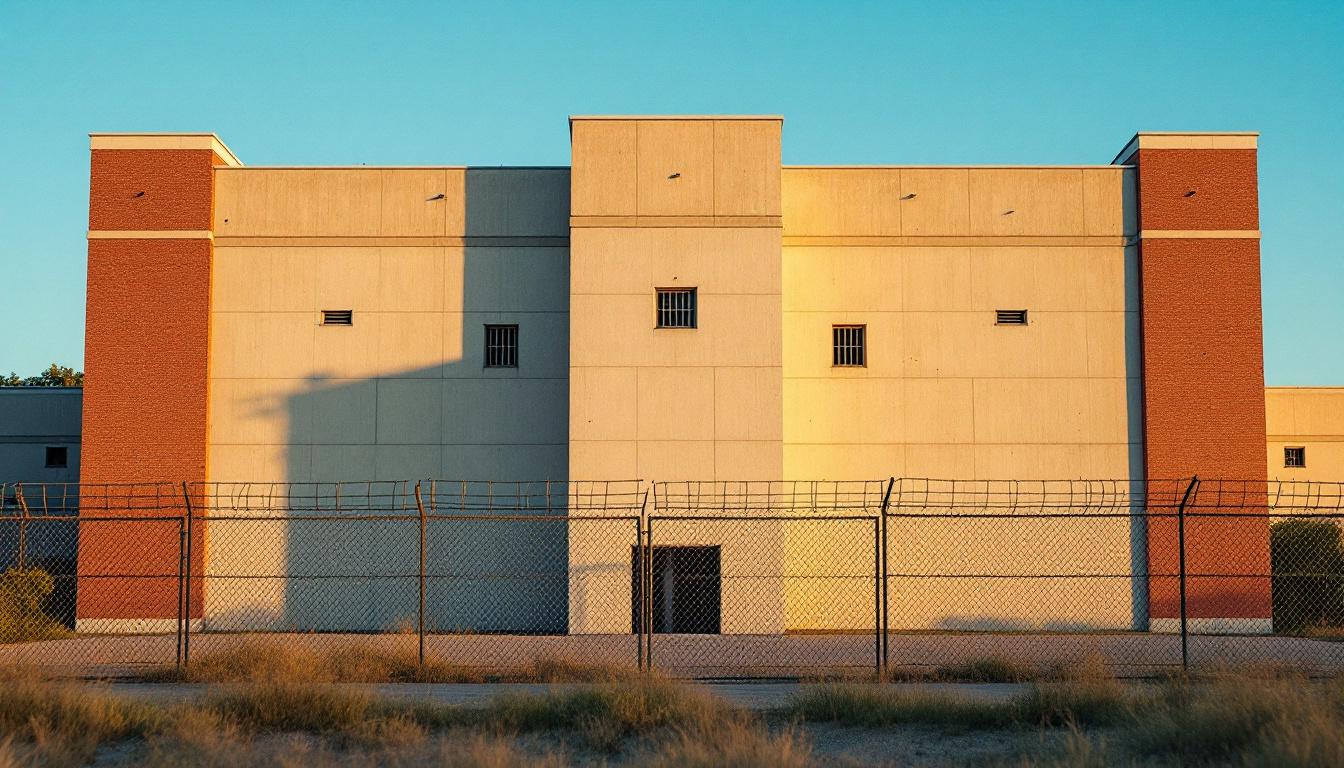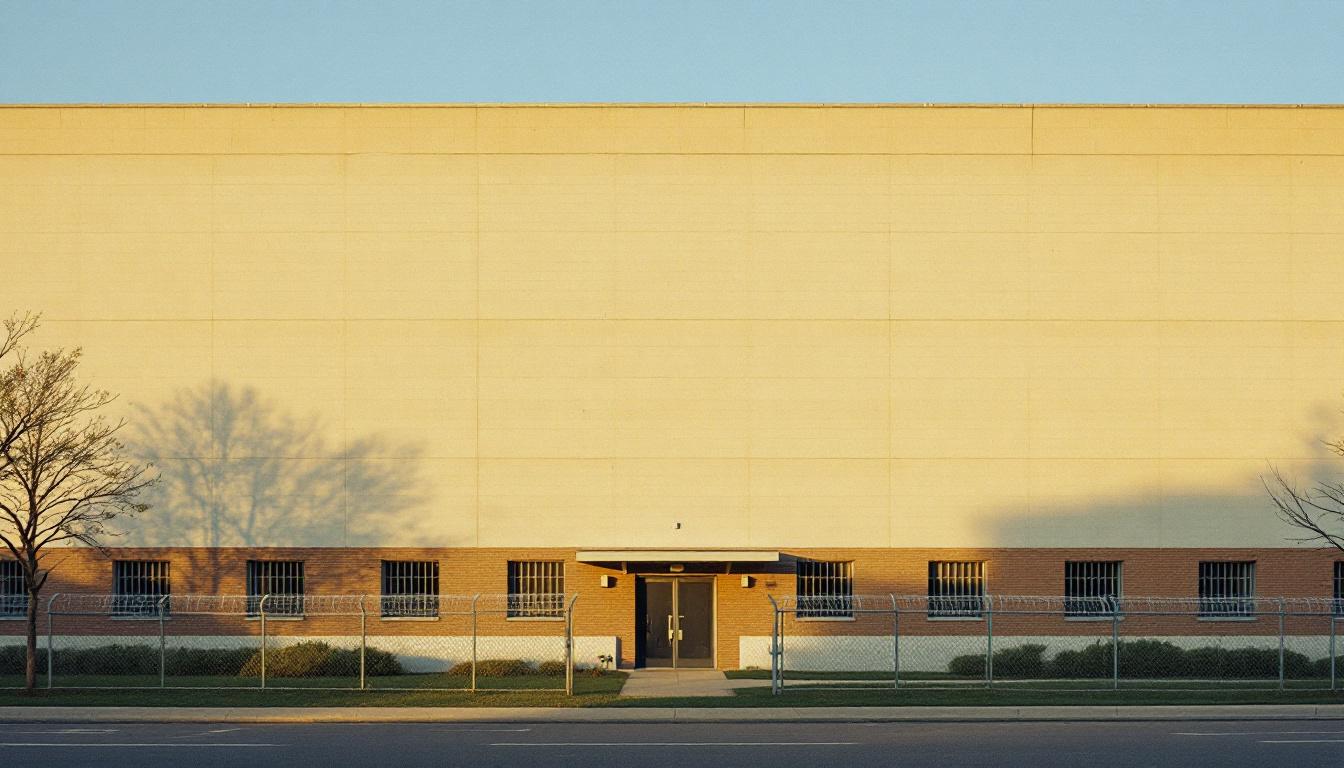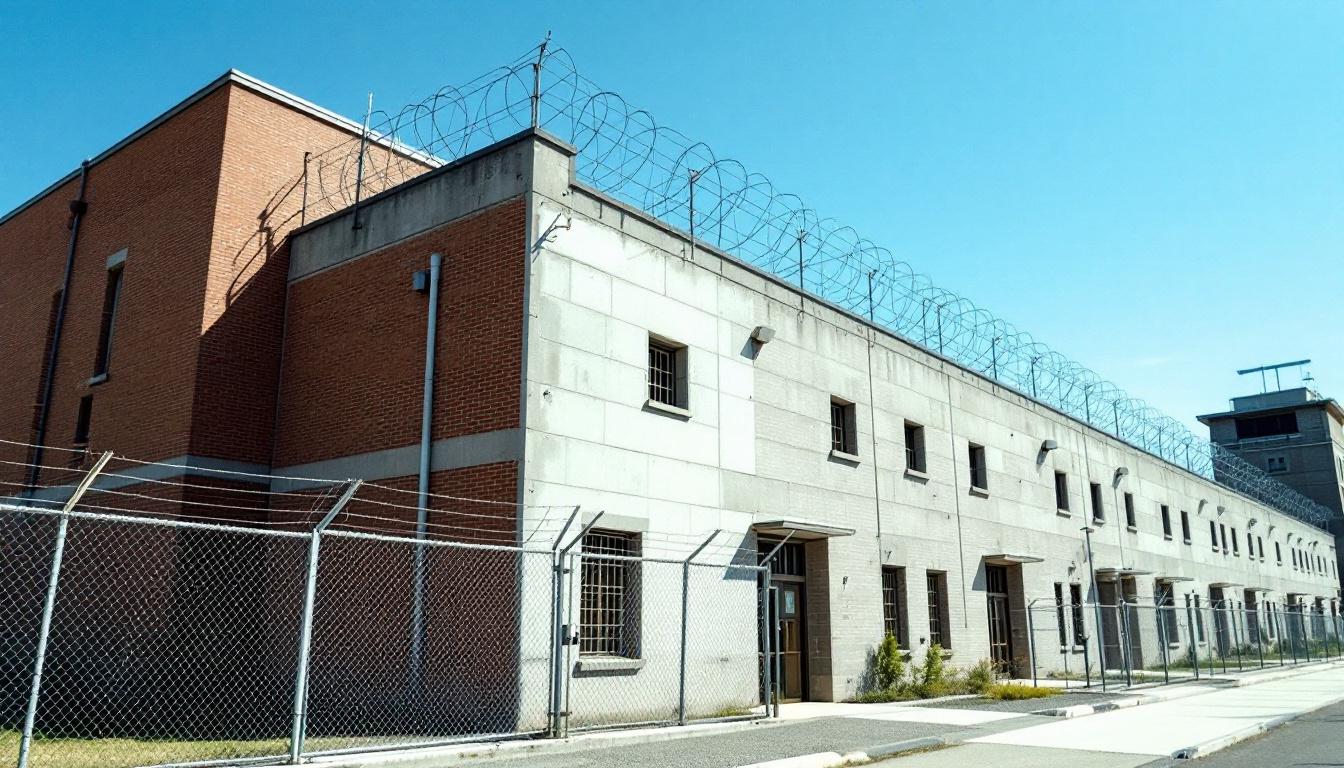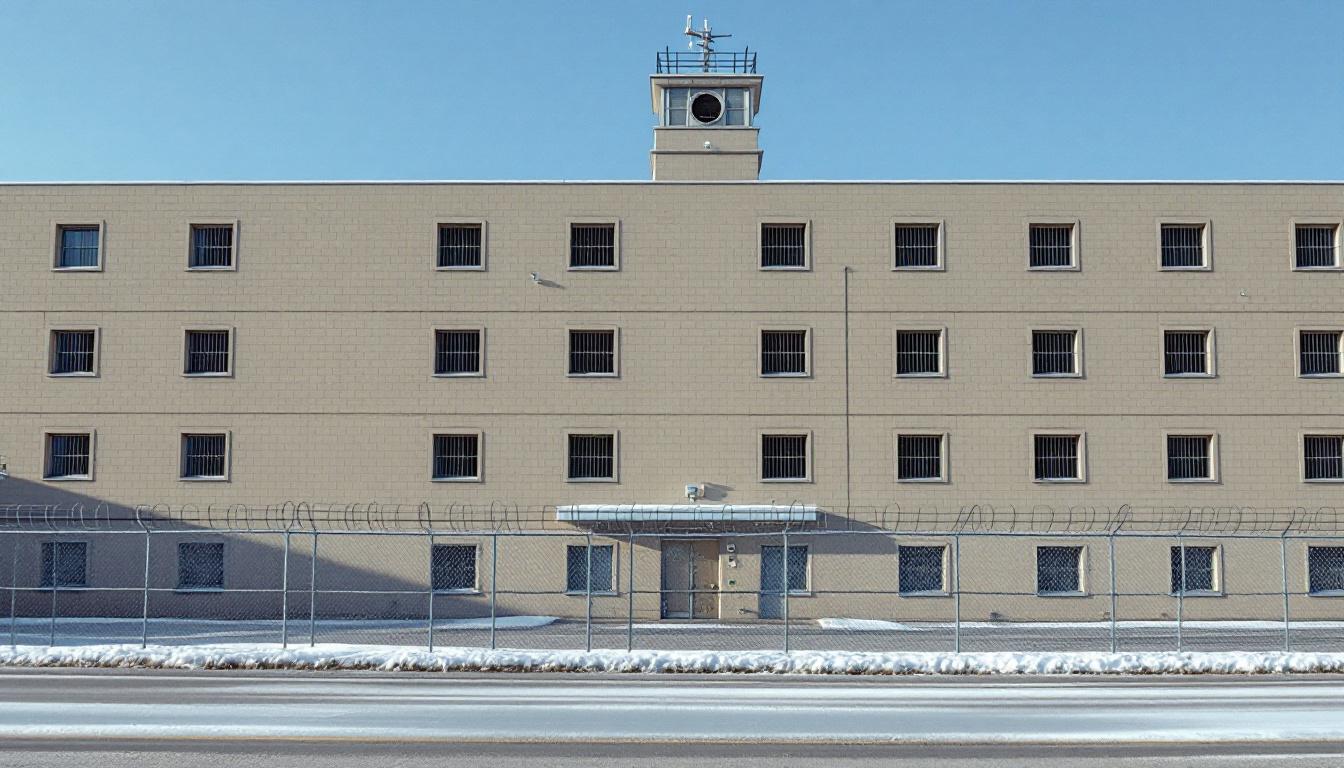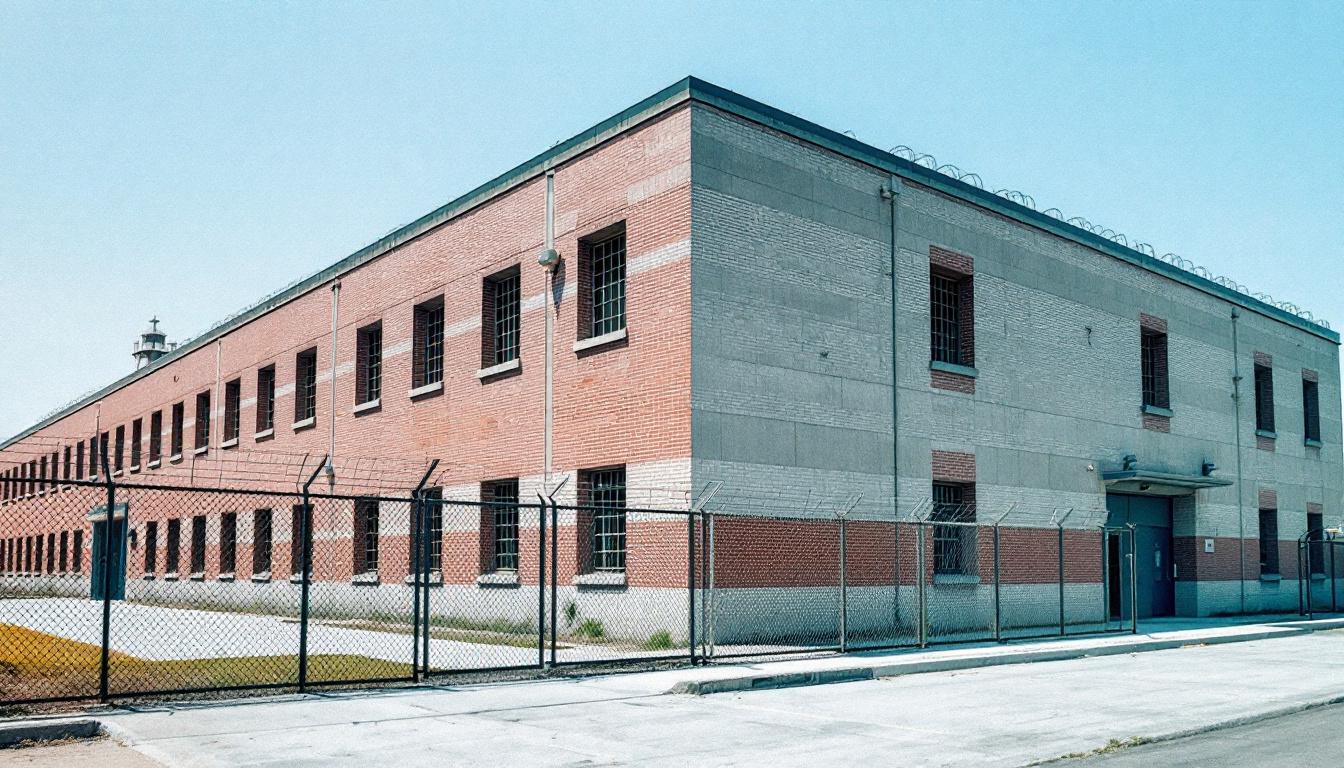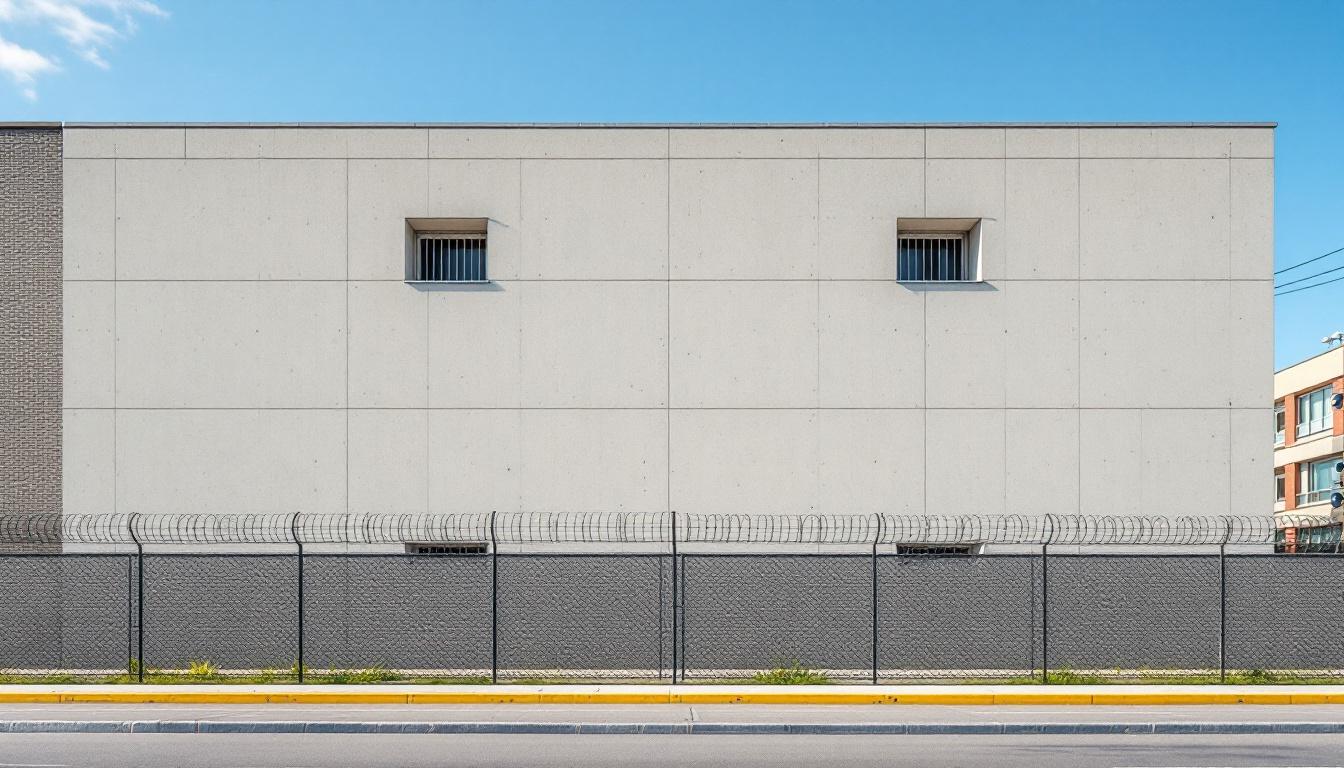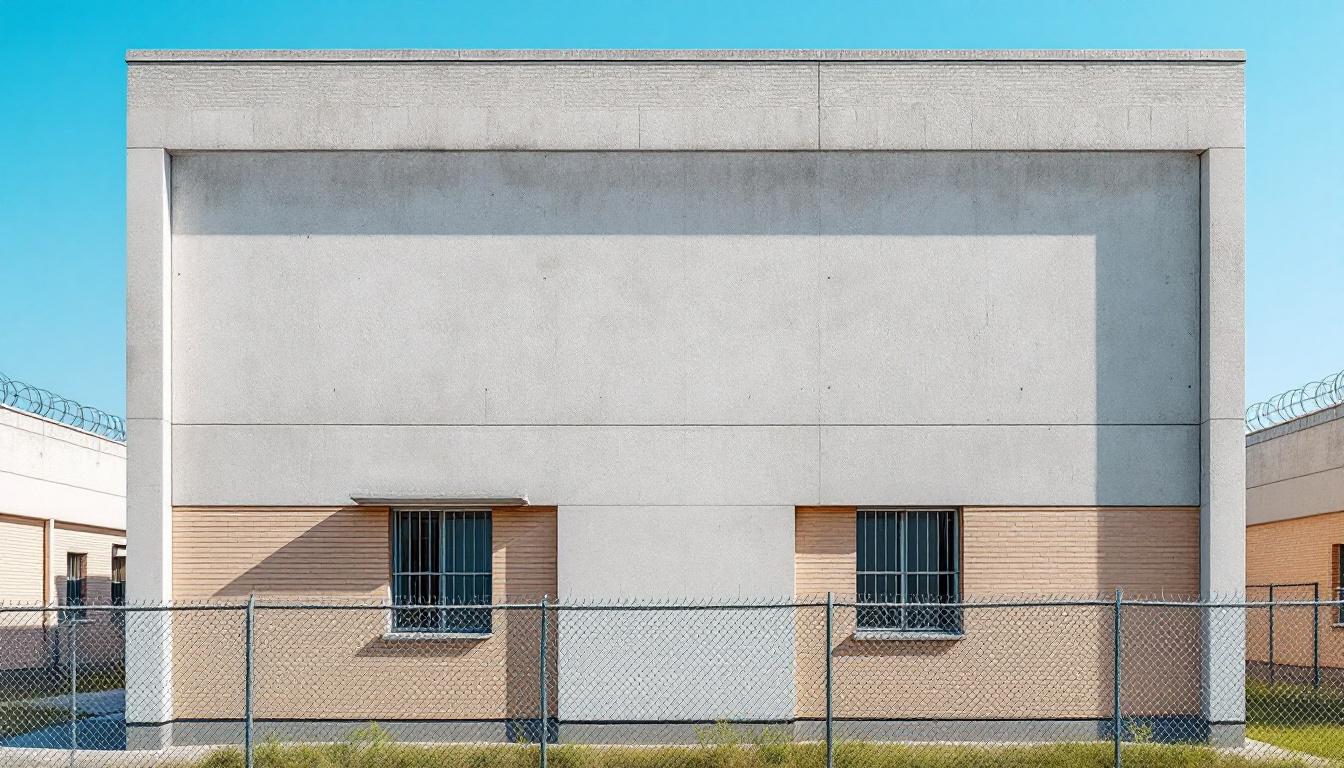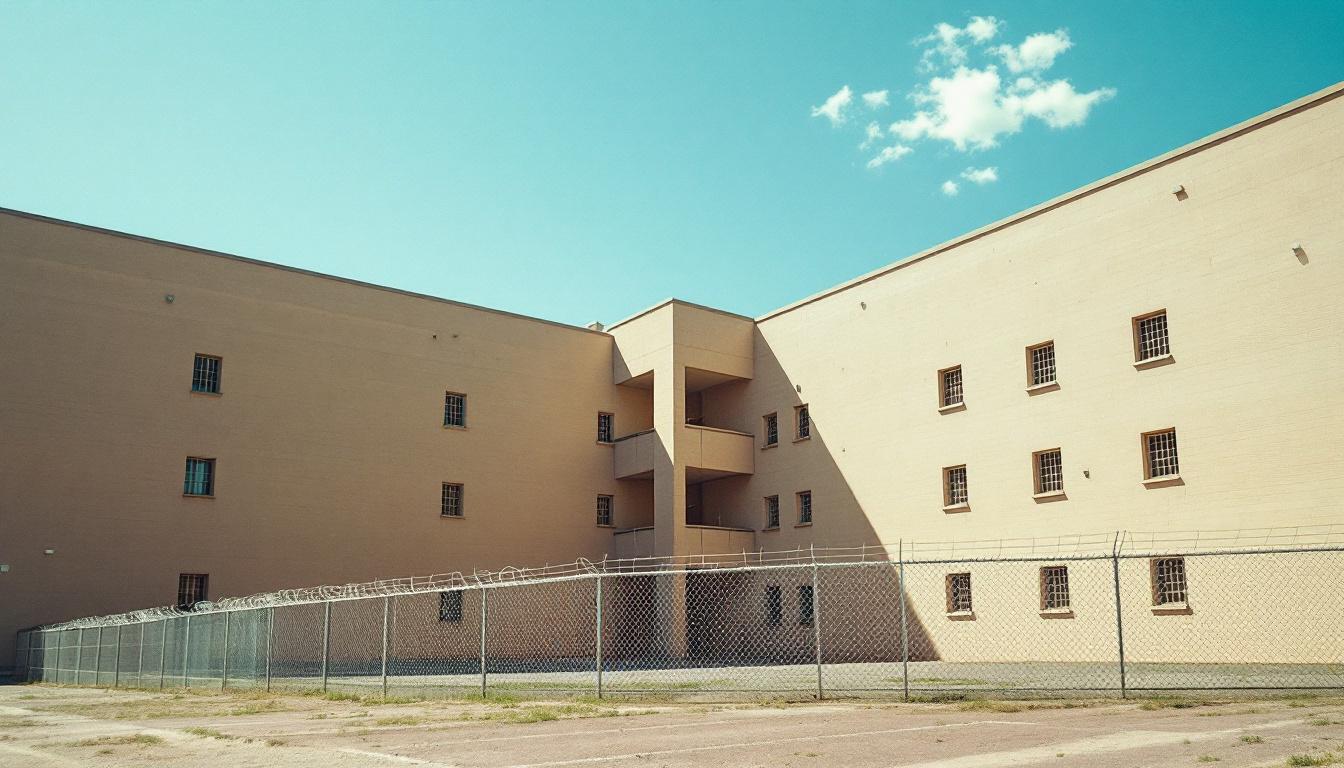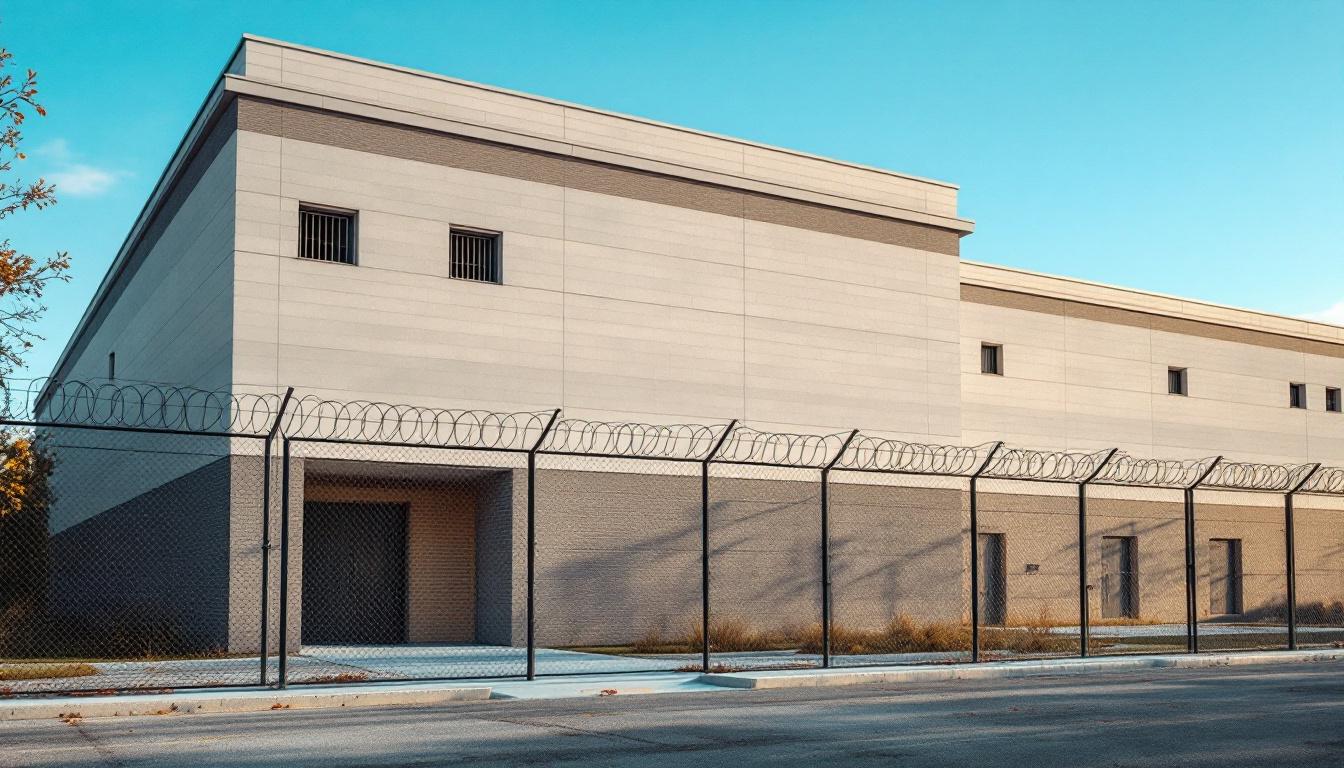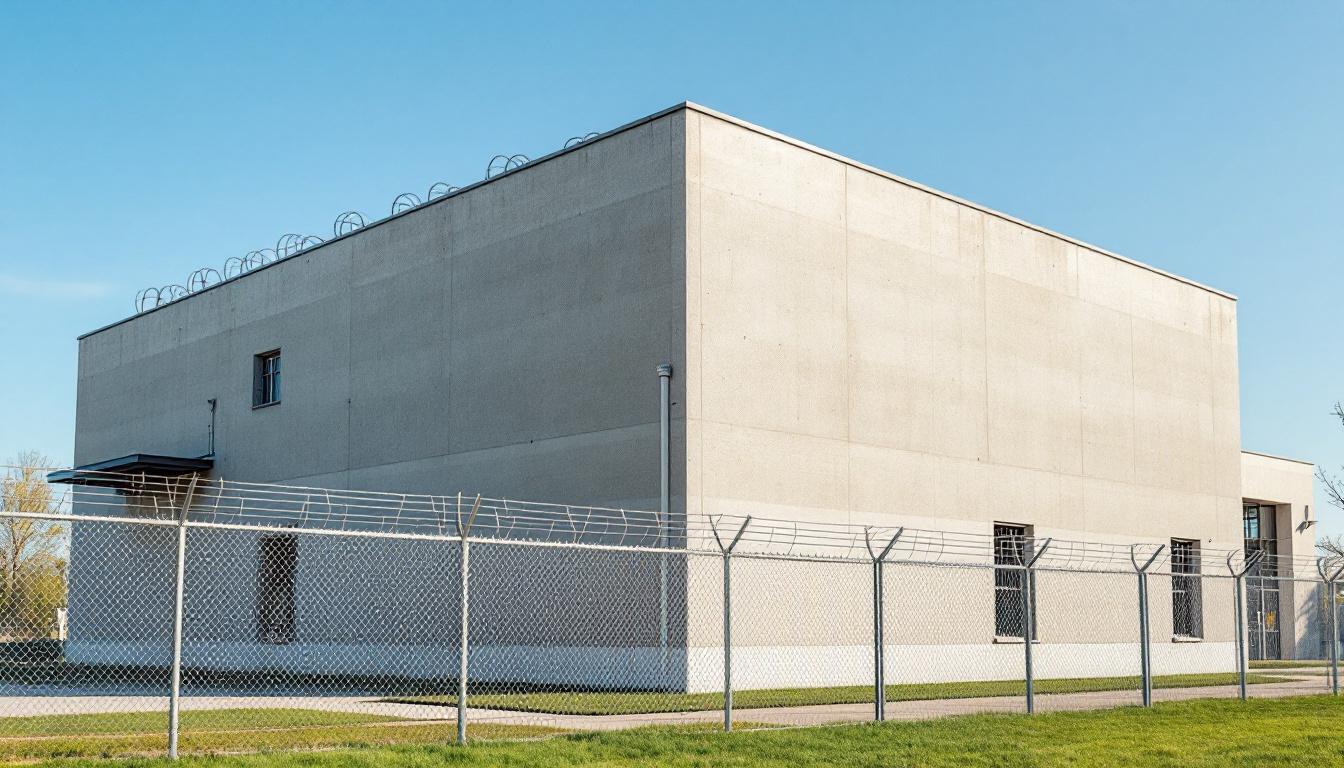
Quick Navigation
How to contact an inmate at Leslie County Detention Center
This comprehensive guide will walk you through how to connect with an inmate at Leslie County Detention Center. Follow the steps below to find an inmate and send letters and photos:
- Search for the inmate using our search tool below
- Create your account or log in to Penmate
- Write your message (up to 6,000 characters)
- Send instantly - inmates receive printed copies daily
Find an Inmate
Search for an inmate to start communicating today
Tip: You can search by first name, last name, or inmate ID number
To contact a person at Leslie County Detention Center start by searching for the person on the official facility website. Perform a search by following these steps:
- Step 1: Enter their first name and last name into the search form and click "Search"
- Step 2: Locate their inmate record
- Step 3: Write down their Inmate ID and any housing information provided
Important! Be sure to enter the person's full name. Nicknames should not be used.
How to Send Messages to Inmates

You can use your phone or computer to send emails, letters, and photos to an inmate. Messages are sent electronically to inmate tablets or kiosks at the facility. If you would like to send a message, start by searching for an inmate at Leslie County Detention Center.
Sending Photos and Postcards

A great way to send love and support to a loved one at Leslie County Detention Center is to send photos and postcards. It only takes a few minutes to send photos from your phone and it makes a huge difference. You can also mail postcards with words of support and inspiration, or design your own postcard for special moments like birthdays and holidays.
Important! Be sure not to send any explicit photos or they may not be approved by the facility. You can also use a photo printing app like Penmate to make sure your photos are printed at the correct size (4x6 or 3x5) and are mailed according to the rules and regulations of Leslie County Detention Center.
Frequently asked questions about Leslie County Detention Center
-
How long does it take to deliver a message?
If you're sending an email message your letter is usually delivered within 24-48 hours. For messages sent via mail you should expect delivery within 3-7 days. All messages will need be approved by Leslie County Detention Center.
-
How much does it cost to send a message to Leslie County Detention Center?
You can send a message free using your phone or mail a message via USPS for the price of a $0.60 stamp and envelope. You can also purchase credits or e-stamps from services starting at $1.99.
-
What services can I use to contact an inmate at Leslie County Detention Center?
Penmate
You can use Penmate to send letters and photos to an inmate from your phone. It's an easy way to stay in touch during your loved one's incarceration. Use the inmate locator to find an inmate's location and contact information, then you can send messages within a few minutes.
Securus messaging
Securus may be another option for communicating with an inmate at Leslie County Detention Center. You can create a friends and family account and purchase credits to send messages. All messages will be reviewed and must be approved by the facility.
JPay
Some county jails and state prisons may support sending messages with JPay. You must register an account with the system, find your loved one, and purchase stamps to send messages. For some locations you can also attach photos.
Smart Jail Mail
You may also check if Smart Jail Mail is available at Leslie County Detention Center. Smart Jail Mail is operated by Smart Communications and has contracted with some state and county jails. After purchasing credits, your messages and photos are sent to the facility, printed out, and then handed out to your loved one.
-
What is the mailing address of Leslie County Detention Center?
Mailing address:
Leslie County Detention Center
2125 KY-118
Hyden, KY 41749
Phone: (606) 672-3548Business hours:
- Monday: Open 24 hours
- Tuesday: Open 24 hours
- Wednesday: Open 24 hours
- Thursday: Open 24 hours
- Friday: Open 24 hours
- Saturday: Open 24 hours
- Sunday: Open 24 hours
-
What are the visiting hours at Leslie County Detention Center?
Visiting hours at Leslie County Detention Center vary by housing unit and security level. Generally, visits are scheduled on weekends and holidays, with some facilities offering weekday visits. Contact the facility directly at (606) 672-3548 or check their website for the current visiting schedule. Visits typically last 30-60 minutes and must be scheduled in advance.
-
What items are prohibited when sending mail to Leslie County Detention Center?
Prohibited items typically include: cash, personal checks, stamps, stickers, glitter, glue, tape, staples, paperclips, polaroid photos, musical or blank greeting cards, hardcover books, magazines with staples, and any items containing metal or electronics. Only send letters on plain white paper with blue or black ink. Photos must be printed on regular photo paper (no Polaroids). Always check with Leslie County Detention Center for their specific mail policies.
-
How do I send money to an inmate at Leslie County Detention Center?
You can send money to an inmate at Leslie County Detention Center through several methods: 1) Online using JPay, Access Corrections, or the facility's approved vendor, 2) Money orders mailed directly to the facility with the inmate's name and ID number, 3) Kiosks located in the facility lobby, or 4) Over the phone using a credit or debit card. Fees vary by method, typically ranging from $2.95 to $11.95 per transaction.
-
Can I schedule a video visit with an inmate at Leslie County Detention Center?
Many facilities now offer video visitation as an alternative to in-person visits. At Leslie County Detention Center, video visits may be available through services like Penmate, Securus Video Connect, GTL, or ICSolutions. Video visits typically cost $10-20 for 20-30 minutes and must be scheduled in advance. You'll need a computer or smartphone with a camera and reliable internet connection. Contact the facility for their specific video visitation policies and approved vendors.
-
What identification do I need to visit an inmate at Leslie County Detention Center?
All visitors must present valid government-issued photo identification such as a driver's license, state ID, passport, or military ID. Minors must be accompanied by a parent or legal guardian who can provide the minor's birth certificate. Some facilities require visitors to be on the inmate's approved visitation list, which may require a background check. Contact Leslie County Detention Center for specific ID requirements and visitor approval procedures.
-
How can I find out an inmate's release date?
To find an inmate's release date at Leslie County Detention Center, you can: 1) Use the online inmate search tool if available, 2) Call the facility's records department, 3) Contact the inmate's case manager or counselor, or 4) Have the inmate provide this information during a call or visit. For privacy reasons, some facilities only release this information to immediate family members.
Facility Overview
Contact Information
Leslie County Detention Center2125 KY-118
Hyden, KY 41749
Phone: (606) 672-3548
Official Website

About Leslie County Detention Center
Community safety and offender rehabilitation converge at the heart of Leslie County's correctional operations, where the Leslie County Detention Center serves as a vital component of eastern Kentucky's criminal justice infrastructure. Positioned within the Appalachian region of Hyden, this KY correctional facility operates under a comprehensive operational philosophy that balances secure custody with evidence-based programming designed to address the underlying factors contributing to criminal behavior. The facility typically maintains a structured environment that emphasizes personal accountability while providing inmates services that may include educational opportunities, substance abuse counseling, and vocational training programs tailored to the regional employment landscape.
The detention center's approach to rehabilitation reflects broader trends in modern correctional practices, integrating cognitive-behavioral interventions with practical skill development to prepare individuals for successful community reintegration. Staff members generally work within a framework that prioritizes both institutional security and therapeutic programming, recognizing that effective detention center operations must address immediate public safety concerns while fostering long-term behavioral change. The facility often collaborates with local organizations and service providers to ensure continuity of care, particularly in areas such as mental health treatment, addiction recovery, and job placement assistance that align with the economic realities of the broader Hyden community and surrounding Leslie County region.
Programs & Services
Personal transformation begins with access to meaningful opportunities that address the multifaceted challenges inmates face upon reentry into society. The Leslie County Detention Center typically emphasizes a comprehensive approach to rehabilitation, recognizing that sustainable change requires addressing educational deficits, vocational skills gaps, and underlying behavioral issues simultaneously. This philosophy of holistic development guides the facility's service delivery, ensuring that inmates may access resources designed to build both practical competencies and personal resilience.
Educational services often form the cornerstone of the facility's rehabilitation efforts, providing inmates with opportunities to pursue academic advancement through structured learning environments. These educational offerings may include basic literacy instruction, GED preparation, and continuing education opportunities that help participants develop critical thinking skills and academic foundations. Furthermore, vocational programs typically complement these educational services by offering hands-on training in practical trades such as plumbing and forklift operation, equipping inmates with marketable skills that enhance their employment prospects upon release.
The facility's support infrastructure often extends beyond traditional classroom instruction to encompass therapeutic interventions and comprehensive reentry planning. Substance abuse treatment services may provide inmates with evidence-based therapeutic approaches to address addiction issues that frequently contribute to criminal behavior. Additionally, housing assistance programs typically help participants navigate the complex process of securing stable accommodations post-release, while prison industries initiatives may offer structured work experiences that reinforce professional development and workplace readiness skills essential for successful community reintegration.
Daily Life & Visitation
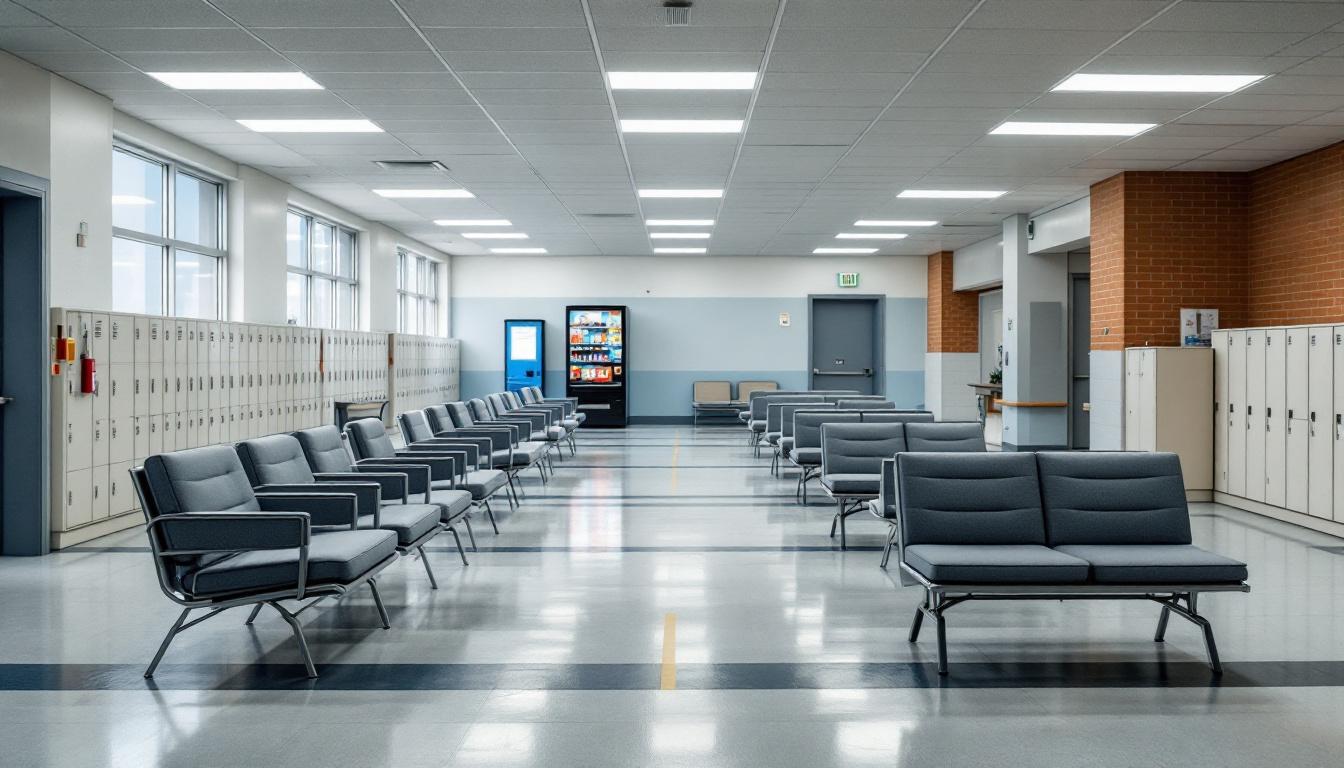
The concrete walls and fluorescent lighting of the housing units at Leslie County Detention Center create an institutional atmosphere where inmates must quickly learn to navigate their new surroundings. Today's routine begins early with morning counts and meal service, consistently following a structured schedule that provides predictability in an otherwise uncertain environment. Inmates typically wake to the sound of staff conducting security checks, followed by breakfast service in the main dining area where meals are served on scheduled rotations to accommodate the facility's population.
Living accommodations generally consist of shared cells or dormitory-style housing units, where inmates adapt to limited personal space and the constant presence of others. Furthermore, each housing area typically includes common areas with seating and tables where inmates may gather during designated recreation periods. Personal belongings are usually restricted to essential items that can be stored in small lockers or designated spaces, while additional necessities can often be purchased through the commissary system when funds are available.
Although the environment presents challenges, various programs and activities provide structure throughout the week, including educational opportunities, religious services, and recreational periods that may include television viewing or outdoor exercise when weather permits. Inmates typically have access to scheduled visitation with family members, either in-person during designated hours or through video calling systems that help maintain important connections with loved ones. Work assignments within the facility, such as kitchen duties, cleaning responsibilities, or laundry services, offer inmates the opportunity to contribute to daily operations while developing routine and purpose during their stay.
Ready to Connect?
Start communicating with your loved one today
Search for an Inmate
